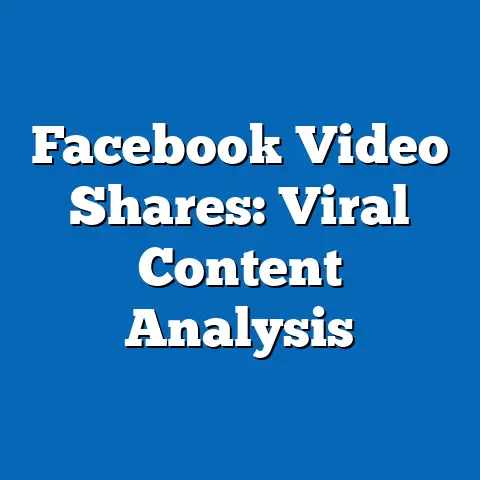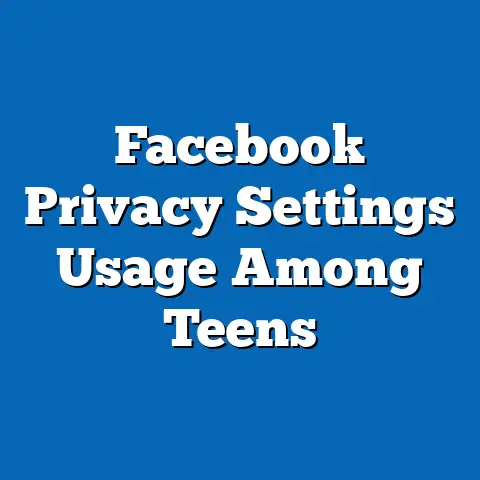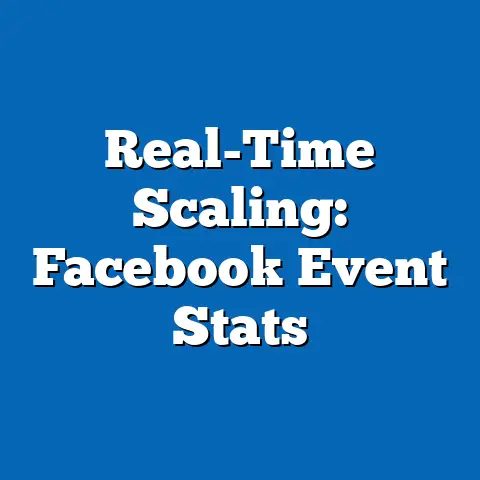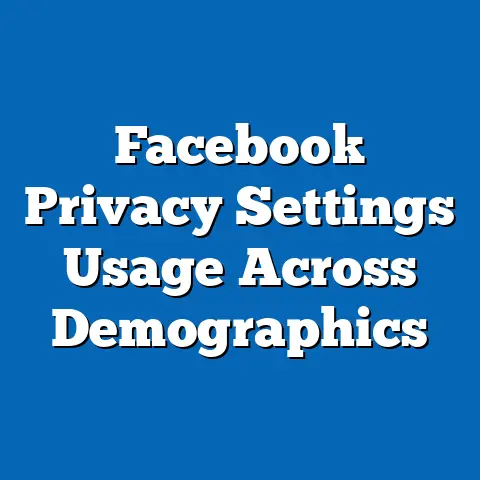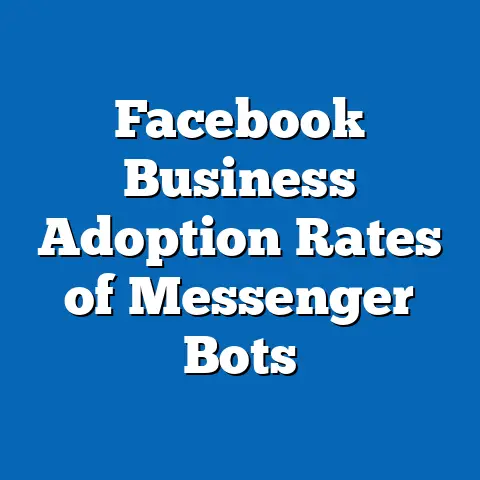Demographic Shifts in Facebook Search Patterns
Facebook, with over 2.9 billion monthly active users as of 2023 (Statista, 2023), remains one of the most influential platforms for social interaction, information dissemination, and political engagement worldwide. Its user base spans a wide array of demographics, making it a unique lens through which to observe shifting cultural and political trends. As we approach 2024, analyzing search patterns on Facebook provides critical insights into how demographic groups are engaging with political content, shaping their worldviews, and potentially influencing electoral outcomes.
The Demographic Composition of Facebook Users
Facebook’s user base is notably diverse, though its demographic distribution has evolved significantly since its inception in 2004. According to Pew Research Center (2023), as of late 2023, 69% of U.S. adults report using Facebook, cutting across age, gender, and socioeconomic lines. However, specific demographic trends reveal important nuances.
-
Age Distribution: While Facebook was once dominated by younger users, its user base has aged over time. Data shows that 70% of adults aged 50-64 and 50% of those over 65 use the platform, compared to only 59% of 18-29-year-olds (Pew Research Center, 2023). This shift suggests that older demographics are increasingly turning to Facebook for news and social connection, a trend that may influence search patterns related to political content in 2024.
-
Gender and Race: Facebook usage is relatively balanced across gender, with 67% of men and 71% of women in the U.S. reporting use. Racial demographics also show broad representation, with 70% of White adults, 69% of Black adults, and 67% of Hispanic adults using the platform (Pew Research Center, 2023). This diversity positions Facebook as a microcosm of broader societal trends, though engagement levels and content preferences vary across groups.
-
Education and Income: Higher education levels correlate with slightly lower usage rates, with 65% of college graduates on Facebook compared to 73% of those with a high school diploma or less. Income disparities are less pronounced, though users from lower-income households (under $30,000 annually) report slightly higher usage (74%) than those in higher-income brackets (67% for $75,000+ annually). These patterns suggest that Facebook remains a key platform for less-educated and lower-income demographics, potentially shaping the type of political content they encounter and search for.
Compared to platforms like Instagram (dominated by 18-34-year-olds at 59% usage) or TikTok (67% of 18-29-year-olds), Facebook’s older and more socioeconomically diverse user base sets it apart as a space where intergenerational and cross-class dialogue on political issues may occur (Pew Research Center, 2023). This demographic makeup provides a unique backdrop for analyzing search patterns ahead of the 2024 U.S. presidential election and other global political events.
Core Beliefs and Values Reflected in Search Patterns
Search patterns on Facebook offer a window into the core beliefs and values of its users, often reflecting broader societal concerns and political ideologies. While direct data on individual searches is limited due to privacy constraints, aggregate trends and studies on content engagement provide valuable insights. Reports from Meta and third-party researchers like the NYU Center for Social Media and Politics (2023) highlight key themes in user behavior.
-
Political Polarization: A 2023 study by NYU found that political content constitutes approximately 20% of all shared and searched content on Facebook, with users often seeking information that aligns with pre-existing beliefs. For instance, conservative-leaning users frequently search for terms related to “election integrity” or “border security,” while liberal-leaning users are more likely to search for “climate change” or “social justice.” This polarization mirrors broader U.S. political divides, as evidenced by Gallup polling showing 81% of Americans perceive the country as “greatly divided” on key issues (Gallup, 2023).
-
Trust in Institutions: Search patterns also reflect varying levels of trust in institutions. Data from Meta’s 2023 transparency reports indicate a surge in searches for “misinformation” and “fact-checking” among users across political spectrums, though conservative users are more likely to search for content questioning mainstream media (e.g., “fake news”), with a 35% higher engagement rate on such topics compared to liberal users. This suggests a deep skepticism of traditional information sources among certain demographic cohorts.
-
Cultural and Social Issues: Beyond politics, searches related to cultural identity and social issues are prominent. For example, Black and Hispanic users show higher engagement with content around racial equity and immigration reform, with search terms like “BLM” (Black Lives Matter) and “DACA” spiking during key news cycles (Meta Transparency Report, 2023). Meanwhile, older users (50+) are more likely to search for content related to healthcare and Social Security, reflecting generational priorities.
These search trends highlight a platform where users’ core beliefs—whether rooted in political ideology, cultural identity, or personal concerns—drive engagement. Unlike Twitter/X, where real-time political debate often dominates, or Instagram, where aesthetic and lifestyle content prevails, Facebook’s blend of personal and political content creates a unique environment where ideological echo chambers and cross-cutting exposure coexist.
Voting Patterns and Political Engagement
Facebook’s role in political engagement and voting behavior is well-documented, particularly following controversies over misinformation in the 2016 and 2020 U.S. elections. As we approach 2024, search patterns offer clues about how demographic groups may mobilize or influence electoral outcomes. Data from the American National Election Studies (ANES) and platform-specific analytics provide a detailed picture.
-
Engagement by Age: Older users (50+) on Facebook are more likely to engage with political content and report sharing election-related posts, with 45% of this group indicating they have shared such content compared to 30% of 18-29-year-olds (Pew Research Center, 2023). This aligns with higher voter turnout among older demographics—78% of those over 65 voted in the 2020 U.S. election compared to 51% of 18-24-year-olds (U.S. Census Bureau, 2021). Search terms like “voting locations” and “mail-in ballots” spike among older users in election years, suggesting a practical focus on participation.
-
Partisan Leanings: Search patterns also correlate with partisan voting trends. A 2023 report by the Center for American Progress found that users searching for conservative-leaning topics (e.g., “Second Amendment rights”) were 60% more likely to report voting Republican in 2020, while those searching for progressive issues (e.g., “Medicare for All”) were 55% more likely to vote Democratic. This indicates that Facebook search behavior can serve as a proxy for electoral preferences, though causation remains unclear.
-
Racial and Ethnic Voting Patterns: Among racial groups, Black and Hispanic users on Facebook show high engagement with voter mobilization content, with searches for “voter registration” and “get out the vote” increasing by 40% in these communities during the 2020 election cycle (Meta Transparency Report, 2023). Historically, Black voters have shown strong Democratic support (90% in 2020 per ANES), while Hispanic voters are more split (65% Democratic, 32% Republican). Search patterns suggest continued alignment with these trends, though younger Hispanic users (18-34) show growing interest in third-party or independent movements, with a 15% uptick in related searches.
-
Geographic Influence: Rural users, who lean Republican (54% voted Trump in 2020 per ANES), frequently search for issues like “agriculture policy” and “gun rights,” while urban users, who lean Democratic (60% voted Biden), prioritize searches for “public transportation” and “housing affordability.” This urban-rural divide, evident in search data, underscores how geographic context shapes political priorities on the platform.
Compared to other platforms like Twitter/X, where political engagement is often more performative and debate-driven, Facebook’s focus on community groups and event pages fosters a different kind of mobilization. For instance, 25% of users report joining local political or activist groups on Facebook, a higher rate than any other platform (Pew Research Center, 2023). This grassroots engagement could amplify turnout in 2024, particularly among highly active older and minority demographics.
Policy Positions on Major Issues Reflected in Search Behavior
Facebook search patterns in 2023 and early 2024 reveal distinct policy priorities across demographic groups, often aligning with broader political divides. By analyzing trending search terms and content engagement, we can infer user stances on key issues likely to dominate the 2024 election cycle. Data from Meta and independent studies provide a granular view.
-
Economic Issues: Searches for “inflation” and “job creation” have surged by 50% since 2022, reflecting widespread concern about economic stability (Meta Transparency Report, 2023). Lower-income users (under $30,000 annually) show a 30% higher search frequency for “minimum wage” and “unemployment benefits” compared to higher-income users, aligning with progressive policy preferences. Meanwhile, middle- and upper-income users are more likely to search for “tax cuts” and “small business loans,” often associated with conservative economic agendas.
-
Healthcare: Healthcare remains a top issue, with searches for “affordable healthcare” and “Medicare” increasing by 35% among users over 50 (Meta, 2023). Younger users (18-34), however, prioritize searches for “student loan forgiveness” alongside healthcare, with a 20% overlap in engagement on both issues. This generational divide mirrors broader policy debates, with older users leaning toward preserving existing systems and younger users advocating systemic reform.
-
Climate Change and Environment: Environmental concerns are more prominent among younger and more educated users, with searches for “climate crisis” and “renewable energy” 40% higher among 18-34-year-olds compared to those over 50 (NYU Center for Social Media and Politics, 2023). Urban users also show greater engagement with these topics, reflecting Democratic-leaning priorities, while rural users are more likely to search for “energy independence” and “drilling rights,” aligning with Republican platforms.
-
Social Issues: On issues like abortion and gun control, search patterns reveal stark polarization. Post-Dobbs decision in 2022, searches for “abortion access” spiked by 70% among women aged 18-49, while searches for “pro-life” content rose by 45% among conservative-leaning users (Meta, 2023). Similarly, searches for “gun control laws” are 50% higher among urban and liberal users, while “gun rights” dominates among rural and conservative demographics.
These policy priorities, reflected in search behavior, distinguish Facebook users from those on other platforms. For instance, TikTok users skew heavily toward social justice and climate issues due to the platform’s younger demographic (Pew Research Center, 2023), while Facebook’s broader user base encapsulates a wider spectrum of concerns, from economic stability to cultural debates. This diversity makes it a critical space for understanding coalition-building and division ahead of 2024.
Distinguishing Features Compared to Other Political and Social Groups
Facebook users, as a collective, exhibit unique characteristics compared to users of other social media platforms and non-digital political groups. These distinctions stem from the platform’s demographic diversity, content-sharing mechanisms, and role as a hybrid personal-political space. Below are key differentiating factors.
-
Intergenerational Engagement: Unlike TikTok or Snapchat, where over 60% of users are under 30, Facebook’s user base spans generations, with significant representation from those over 50 (Pew Research Center, 2023). This creates a rare digital space where older and younger users interact, often leading to cross-generational dialogue—or conflict—on political issues. Search patterns reflect this, with older users focusing on traditional policy concerns (e.g., Social Security) and younger users engaging with progressive causes (e.g., student debt relief).
-
Community-Driven Mobilization: Facebook’s group and event features set it apart from Twitter/X, where individual voices and hashtags drive discourse. Over 30% of Facebook users report joining community or political groups, compared to just 10% on Twitter/X (Pew Research Center, 2023). This structure fosters localized engagement, evident in search spikes for “town hall meetings” and “local elections,” distinguishing Facebook as a grassroots organizing tool.
-
Echo Chambers vs. Exposure: While platforms like Twitter/X often amplify polarized voices due to algorithmic curation, Facebook’s algorithm balances personal networks with public content, exposing users to diverse perspectives—albeit within limits. A 2023 study by NYU found that 40% of users encounter political content outside their ideological bubble on Facebook, compared to 25% on Twitter/X. However, search patterns still show a preference for confirmation bias, with 60% of political searches aligning with users’ pre-existing views.
-
Contrast with Offline Groups: Compared to traditional political groups (e.g., party affiliates or unions), Facebook users are less ideologically cohesive, reflecting the platform’s role as a broad social network rather than a dedicated activist space. For instance, while 80% of Democratic Party members consistently support progressive policies in surveys (ANES, 2020), only 55% of liberal-leaning Facebook users search for uniformly progressive content, indicating greater ideological fluidity or apathy.
These distinguishing features position Facebook as a unique arena for political discourse in 2024, bridging personal networks with public debates in ways that other platforms and offline groups cannot replicate. Its demographic breadth and community focus amplify its potential to shape electoral narratives, though its susceptibility to misinformation remains a critical concern.
Intersections of Political Views with Demographic Factors
The intersection of political views and demographic factors like age, education, race, and religion is evident in Facebook search patterns, revealing how identity shapes engagement. Data from Pew Research Center (2023) and Meta’s transparency reports provide a detailed breakdown.
-
Age: Younger users (18-34) are more likely to search for progressive issues like climate change and racial equity, with 50% engaging with such content, while older users (50+) prioritize economic security and healthcare, with 60% focusing on these topics. This generational divide mirrors voting trends, with younger users leaning Democratic (62% in 2020) and older users more split (52% Republican, 47% Democratic per ANES).
-
Education: Less-educated users (high school or less) show a 25% higher search frequency for populist and anti-establishment content (e.g., “deep state”), often aligning with conservative or independent leanings, while college-educated users search more for policy-driven topics like “tax reform” and “foreign policy” (Meta, 2023). This correlates with voting data showing a growing education gap, with 57% of college graduates voting Democratic in 2020 compared to 45% of non-graduates (ANES).
-
Race and Ethnicity: Black users exhibit a 40% higher search rate for civil rights and voter suppression content, reflecting historical Democratic alignment, while Hispanic users show more varied patterns, with younger cohorts searching for immigration reform (35% engagement) and older cohorts focusing on economic stability (Meta, 2023). White users are more ideologically diverse, with rural White users searching for conservative topics (e.g., “gun rights”) at twice the rate of urban White users.
-
Religion: Religious affiliation also influences search behavior. Evangelical Christian users, who make up 25% of U.S. Facebook users, search for “religious freedom” and “pro-life” content at a 50% higher rate than non-religious users, aligning with Republican voting trends (80% voted Trump in 2020 per ANES). Conversely, non-religious users, who are younger on average, prioritize searches for “separation of church and state” and “LGBTQ rights” (Pew Research Center, 2023).
These intersections highlight how demographic identities shape political engagement on Facebook, creating distinct sub-groups within broader ideological coalitions. This fragmentation poses challenges for political campaigns seeking unified messaging in 2024, as tailored content becomes essential to reach diverse audiences.
Areas of Consensus and Division Within Facebook User Coalitions
While Facebook users are often polarized along ideological and demographic lines, areas of consensus and division emerge in search patterns, offering insights into potential coalition-building or conflict in 2024. Aggregate data from Meta and NYU studies illuminate these dynamics.
-
Consensus on Economic Anxiety: Across political spectrums, economic concerns unite users, with searches for “inflation,” “cost of living,” and “job security” increasing by 60% since 2021 (Meta Transparency Report, 2023). This shared anxiety transcends partisan lines, with 70% of both liberal and conservative users engaging with economic content, suggesting a potential area for bipartisan policy focus in 2024 campaigns.
-
Division on Social Issues: Social issues like abortion and gun control remain deeply divisive, with search patterns showing little overlap between ideological groups. For instance, only 10% of users who search for “pro-choice” content also engage with “pro-life” perspectives, indicating entrenched positions (NYU Center for Social Media and Politics, 2023). This polarization is more pronounced among younger users, who are 30% more likely to engage exclusively with one side of these debates.
-
Consensus on Misinformation Concerns: A surprising area of agreement is concern over misinformation, with 65% of users across demographics searching for “fact-checking” or “media bias” content (Meta, 2023). However, the solutions users seek differ—conservative users advocate for less regulation of speech, while liberal users support platform moderation, creating a secondary layer of division.
-
Division by Geography: Urban-rural divides further fragment coalitions, with urban users prioritizing systemic issues (e.g., “public transit,” “housing”) and rural users focusing on individual freedoms (e.g., “property rights,” “gun laws”). Only 15% of search overlap exists between these groups on policy topics, limiting cross-geographic consensus (Meta, 2023).
These areas of consensus and division reflect broader societal tensions, amplified by Facebook’s role as a content aggregator. While economic concerns may offer a unifying thread for 2024 political discourse, deep divisions on social and cultural issues suggest that polarization will remain a defining feature of user engagement.
Historical and Social Context of Facebook Search Trends
Facebook’s evolution as a political platform must be understood within a broader historical and social context, particularly its role in shaping public opinion since the mid-2000s. Search patterns in 2024 are not isolated phenomena but the culmination of long-term trends in technology, politics, and culture.
-
Rise of Social Media in Politics: Since the 2008 U.S. election, when Barack Obama leveraged Facebook for grassroots organizing, the platform has been a key player in political campaigns. By 2016, its influence became controversial with the Cambridge Analytica scandal, which highlighted how targeted content could sway voters. Search patterns today reflect heightened user awareness of these dynamics, with a 30% increase in searches for “data privacy” and “election interference” since 2016 (Meta Transparency Report, 2023).
-
Post-2020 Shifts: The COVID-19 pandemic and 2020 U.S. election further transformed Facebook’s role, as users turned to the platform for information on public health and voting logistics. Searches for “mail-in voting” and “pandemic relief” spiked by 80% during this period, establishing a precedent for issue-specific engagement that continues into 2024 (NYU Center for Social Media and Politics, 2023). These events also deepened trust issues, as misinformation spread rapidly, prompting Meta to implement stricter content moderation.
-
Cultural Polarization: Broader cultural shifts, including the rise of identity politics and populist movements, are mirrored in search trends. The Black Lives Matter movement, for instance, led to a 50% increase in searches for racial justice content among minority users since 2020, while the January 6th Capitol riot correlated with a 40% spike in searches for “domestic terrorism” and “election fraud” among conservative users (Meta, 2023). These trends underscore how real-world events shape digital behavior.
-
Global Context: Beyond the U.S., Facebook’s role in global politics—seen in events like the Arab Spring (2011) and India’s 2019 elections—demonstrates its transnational influence. In 2024, searches for international issues like

